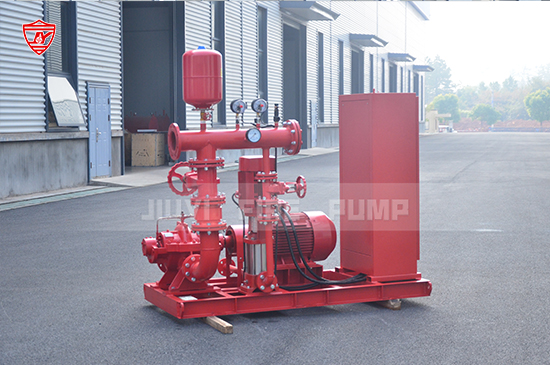Weekly testing of your fire pump system is a key part of maintaining fire protection readiness and ensuring compliance with NFPA 25 standards. A properly executed test not only guarantees system functionality in emergencies but also extends the service life of the fire pump equipment. As a fire pump manufacturer, we strongly recommend setting up a clear and consistent testing schedule for your fire pump systems—whether electric, diesel, or jockey pumps.

NFPA 25 requires that fire pumps be tested regularly to confirm they start automatically and perform correctly. This early detection of mechanical or electrical issues reduces the risk of failure during an actual fire event. Weekly tests provide peace of mind for building owners, facility managers, and safety personnel.
Each weekly fire pump test should include the following steps:
Visual Inspection: Check pump, controller, valves, and piping for leaks, corrosion, and unusual wear.
Automatic Start Test: Verify the pump starts automatically via the pressure drop method.
Run Test: Let the pump run for at least 10 minutes (diesel pumps may need longer).
Check Readings: Record suction/discharge pressure, voltage, amperage, and RPM.
Listen & Observe: Watch for vibrations, abnormal noises, and overheating.
Diesel Pump Checks (if applicable): Monitor fuel levels, battery charge, oil pressure, and temperature.
Here’s how to build a sustainable weekly schedule for your fire pump testing:
Assign Responsibility: Designate trained personnel or third-party inspectors.
Choose the Day & Time: Stick to the same day/time every week to build consistency (e.g., every Monday at 9:00 AM).
Use a Checklist: Create a standardized inspection checklist based on NFPA 25.
Log All Test Data: Maintain a test logbook or digital record with test dates, results, issues found, and corrective actions.
Schedule Regular Maintenance: Use test results to plan preventive maintenance and repairs before they become costly problems.
Use pressure gauges and flow meters that are regularly calibrated.
Install remote monitoring tools for real-time performance data.
Train staff annually on pump testing procedures and updates in fire codes.
Partner with your fire pump manufacturer or service provider for annual flow testing and inspections.
Weekly fire pump testing is not just a best practice—it's a compliance requirement that can save lives and protect property. A disciplined schedule, accurate data logging, and proactive maintenance are your best defense against unexpected system failures.